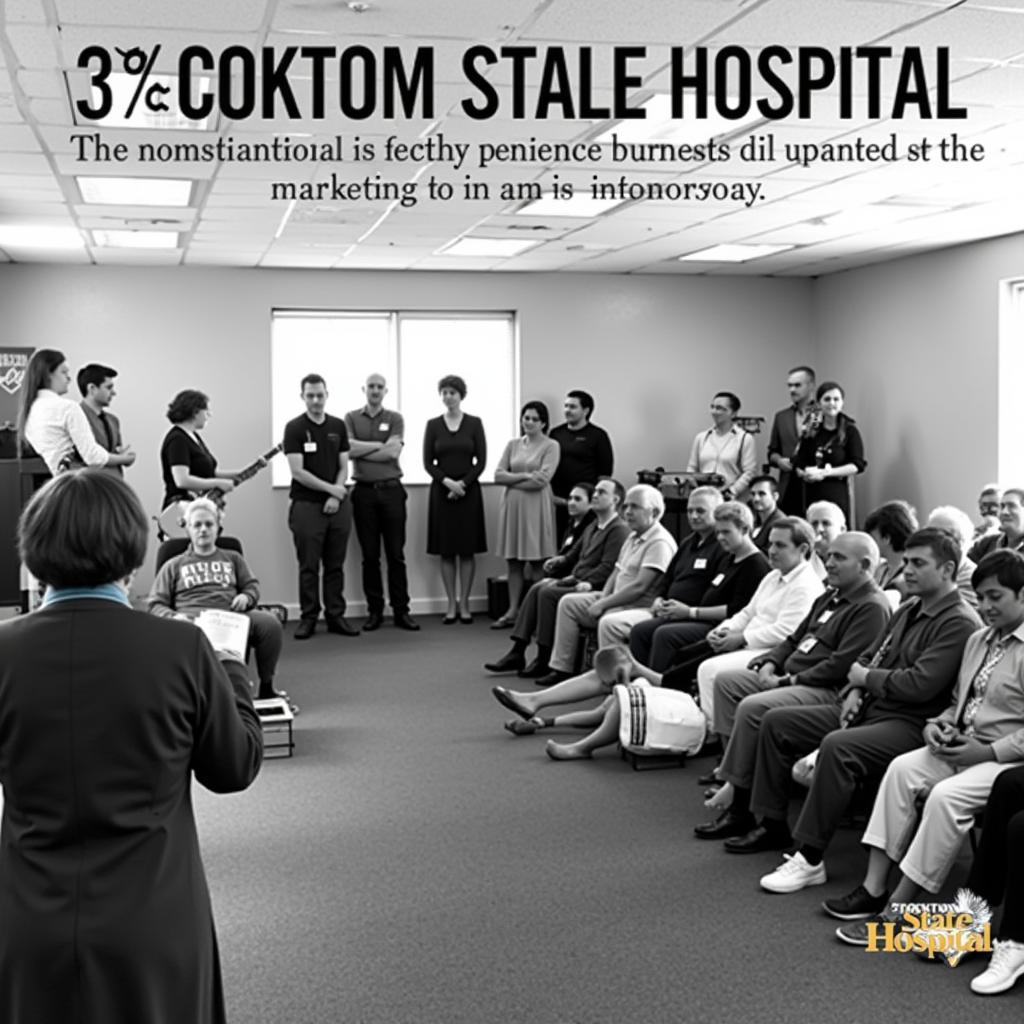Stockton State Hospital, once a beacon of hope for the mentally ill, stands today as a haunting reminder of a bygone era in psychiatric care. Its story, interwoven with both progress and tragedy, offers a glimpse into the evolution of mental health treatment in America.
A Legacy Forged in Need: The Early Years of Stockton State Hospital
The California Gold Rush of the mid-19th century, while a time of immense opportunity, also brought about unforeseen social challenges. The burgeoning population, coupled with the harsh realities of frontier life, led to a surge in mental illness. Existing facilities proved woefully inadequate, prompting the state legislature to establish the “Insane Asylum at Stockton” in 1851.
The hospital, designed to provide compassionate care based on the principles of moral treatment, initially offered a haven for those suffering from various mental ailments. Patients engaged in therapeutic activities such as gardening, farming, and crafts, fostering a sense of purpose and community.
A Shifting Landscape: Evolving Approaches to Mental Health
As the 20th century dawned, Stockton State Hospital, like many psychiatric institutions across the nation, witnessed a shift in treatment philosophies. The advent of new medical discoveries and psychological theories led to the adoption of practices like hydrotherapy, insulin shock therapy, and later, electroconvulsive therapy.
 Treatment Methods at Stockton State Hospital
Treatment Methods at Stockton State Hospital
While these treatments held promise, their application was often inconsistent and poorly understood, leading to mixed results and, in some cases, detrimental side effects for patients.
A Community Within Walls: Life Inside Stockton State Hospital
Despite the evolving and often controversial treatment methods, life within Stockton State Hospital was marked by a strong sense of community. Patients formed bonds, finding solace and support within the confines of the institution. Staff, dedicated to their patients’ well-being, strove to create a semblance of normalcy in an often-isolating environment.
 Life at Stockton State Hospital
Life at Stockton State Hospital
However, overcrowding, understaffing, and the limitations of the era’s understanding of mental health continued to pose significant challenges.
A New Era Dawns: Deinstitutionalization and its Aftermath
The latter half of the 20th century ushered in the era of deinstitutionalization, a nationwide movement advocating for the closure of large psychiatric hospitals in favor of community-based care. Driven by the noble goal of integrating individuals back into society, the movement had unintended consequences.
Many patients, discharged without adequate support systems in place, found themselves struggling to navigate a world ill-equipped to address their needs. Stockton State Hospital, once a sprawling campus housing thousands, saw its population dwindle as patients were released or transferred.
Stockton State Hospital Today: A Legacy of Lessons Learned
Today, Stockton State Hospital stands as a stark reminder of the complexities of mental health care. Its story, etched in the annals of California history, underscores the importance of compassionate, individualized treatment, community support, and ongoing research in addressing the multifaceted challenges of mental illness.
The hospital’s legacy serves as a poignant reminder of the progress made and the work yet to be done in ensuring quality mental health care for all.
Frequently Asked Questions About Stockton State Hospital
-
Was Stockton State Hospital ever investigated for patient mistreatment?
Like many institutions of its time, Stockton State Hospital faced allegations of patient mistreatment. Investigations were conducted, leading to reforms and a greater emphasis on patient rights and ethical treatment. -
Is Stockton State Hospital still operational today?
While the main hospital ceased operations in 1996, a smaller facility, the DeWitt Nelson Youth Correctional Facility, remains on a portion of the original grounds. -
Are there any tours or public access to Stockton State Hospital?
Due to safety concerns and the sensitive nature of the site, there are currently no public tours available. -
What resources are available for individuals seeking information about former Stockton State Hospital patients?
The California State Archives and various historical societies hold records related to Stockton State Hospital. Researchers and family members seeking information can contact these institutions for assistance. -
How has the closure of Stockton State Hospital impacted mental health care in California?
The closure of Stockton State Hospital, along with other large psychiatric hospitals, highlighted the need for comprehensive community-based mental health services. While progress has been made, challenges remain in providing adequate resources and support for individuals with mental illness.